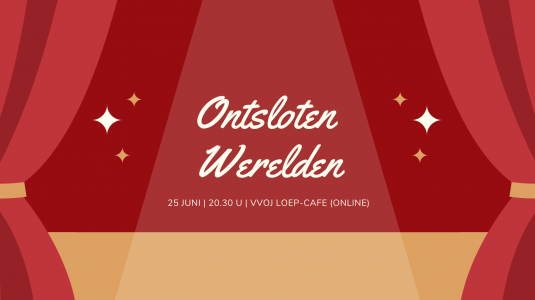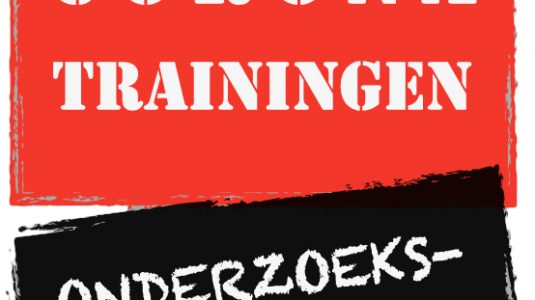This is part 2 of the VVOJ publication: Investigative Journalism in Europe (2005): Country Reports.
by Mark Eeckhaut and Dick van Eijk
After the defeat of Napoleon in 1815, the area now known as Belgium became part of the Netherlands. The Belgian Revolution of 1830 lead to a separation from the Netherlands and the establishment of a sovereign Belgian state.
The southern part of the country — Wallonia — is French speaking, the northern part — Flanders — Dutch speaking. In the east are two smaller areas where German is spoken. Language is by no means neutral in Belgium. French used to be the language of the ruling class, and it was not until 1932 that equal rights for both languages were ensured, at least formally. The dominance of French, and with that of persons from the French-speaking population, is eroding slowly. Knowledge of French is more common in the Dutch-speaking part of the country than the reverse. However, in the last decades of the twentieth century, Flanders has become more affluent. Moreover, the majority of the population lives in Flanders, about sixty percent. Formally, Brussels is a bilingual city, but in reality French is spoken far more in the capital than Flemish.
History has created a horrendously complicated administrative structure, with three counties (Flanders, Wallonia and the Brussels-Capital region) and three communities (Dutch, French and German-speaking). Counties and communities have their own tasks, but they do not coincide geographically. Of course there is a federal government, but there is no such thing as Belgian political parties, or a Belgian civil society. The main political parties are either Flemish or French-speaking, and recruit support exclusively in their own regions.
Belgium is a rich country and has an advanced welfare state, like its neighbouring countries in the North of Europe.
Brussels is the main seat of the European Union and NATO, and this has attracted tens of thousands of civil servants, lobbyists, politicians and journalists.
Current news media situation
Just as there are no Belgian political parties, there are no Belgian media. Newspapers, magazines, radio and television channels are either Flemish or French-speaking, and target that particular part of the population. So media-wise Belgium is not a 10 million people market, but it consists of two entirely separated smaller markets.
Newspaper readership in Belgium is lower than in the Netherlands, Germany, Britain and the Nordic countries, but higher than in the Mediterranean countries. The number of newspapers (28) is small, particularly if one takes into account that no more than half of them are truly autonomous; other newspapers are editions with their own names, but they mostly share content. Belgian newspapers reach about half of the adult population.
|
Belgium at a glance |
|
|
Inhabitants |
10.4 million |
|
Population density |
340 per km2 |
|
Capital |
Brussels |
|
GNP per capita, PPP |
US$ 28,100 |
|
Language |
Dutch, French, German |
|
Access law |
yes, since 1994, but not effective |
|
Corruption (10 is low, 1 is high) |
7.5 |
|
Democracy rank |
12 |
|
Freedom of the press (0 – 100) |
11 (free) |
|
Newspaper circulation |
1.5 million |
|
Circulation per thousand |
144 |
|
Circulation per household |
0.34 |
|
Newspaper reach among adults |
54 percent |
|
Number of newspapers |
28 |
|
Dominant business model |
mixed |
|
Commercial TV since |
1987 |
|
Journalists’ education |
|
|
Journalists’ knowledge of English |
common |
|
Female journalists |
|
|
Newsroom hierarchy |
|
|
Journalists’ political involvement |
|
|
Politicians’ media involvement |
|
|
Investigative journalism organisation |
Vereniging van Onderzoeksjournalisten (VVOJ, Flanders) |
|
Number of members |
430 (60 Flemish) |
|
Information on the sources of these data can be found in the Introduction |
|
The Flemish newspaper market is controlled by three publishers: VUM, De Persgroep and RUG. De Persgroep is active in the Netherlands as well. The largest newspapers in circulation are Het Laatste Nieuws (294,000 including regional editions) and Het Nieuwsblad (211,000 including regional editions). The two upmarket newspapers De Standaard (79,000) and De Morgen (51,000) are more important than their circulation numbers suggest. The business paper De Tijd (50,000) is remarkably widely read, measured against international standards. Two regional papers exceed the 100,000 threshold by a small margin: Gazet van Antwerpen and Het Belang van Limburg.
Three big national newspapers dominate the French language market. Le Soir is still the biggest (104,000) but the tabloid La Dernière Heure is growing fast (83,000). The third, La Libre Belgique (48,000) is struggling to survive. Le Soir, the most influential newspaper, is in crisis. It is quickly losing readers and therefore wants to become more popular to attract new readers. Apart from the big national newspapers, there are a few regional newspapers. They all focus on the regional news but they have some national pages too. The Vers L’ Avenir-group has several regional editions with a total circulation of 101,000. The Sud-Presse group has editions in Liège (La Meuse), Brussels (La Capitale), and Charleroi (La Nouvelle Gazette), with a total circulation of 125,000.
News-wise the most important Flemish magazines are Knack (122,000) and Humo (245,000). The latter runs the broadcast schedules of television and radio as an important asset. Trends and its French language counterpart Tendences (combined circulation 39,000) primarily serve the business community, but run stories with a wider appeal as well.
Leaders in the French language magazine market are Le Soir Magazine, Ciné Télé Revue, Télémoustique and La Libre Match. They mainly cover life-style and boulevard subjects. Le Vif L’ Express (82,000) is an exception. In contrast with the magazines mentioned above, it is more orientated towards big political and social issues and takes on the more serious subjects.
Just like in Flanders, the political influence on the French-speaking media gradually decreased. At the beginning of the nineties, there was the socialist union newspaper Le Peuple, in addition to the communist Le Drapeau Rouge and the catholic workers newspaper La Cité. They have all disappeared. Officially there is no longer any political influence on the media. Indirectly, according to some though, there still is. The French-speaking media are still subsidised by the regional government. Especially for the small newspapers, the money is more than welcome. Some journalists say that is why, unlike their Flemish counterparts, editors hesitate to be too harsh on politicians. Without government money most newspapers would in fact have serious financial problems. But no journalists complain about direct political influence.
Flemish television is dominated by the public service network VRT and the commercial station VTM. When it comes to news, the Flemish viewers have no other choice than these two. The public RTBF and the commercial RTL broadcasting networks cover the whole French-speaking territory. Besides that, there are also a few smaller regional television and radio stations.
Since 2002, the Flemish press has had a self-regulating body, the Journalism Council, to deal with complaints and questions of citizens. There is no equivalent for the French-speaking press. The journalist union has a formal accreditation procedure to distinguish persons as ‘professional journalists’, recognised by law. This status is necessary to be able to make use of press facilities in parliament, courts and other institutions. It is illegal to present oneself as a ‘professional journalist’ without the required credentials, and this may be punished with a fine.
History of investigative journalism
The leading upmarket newspapers in Belgium are extremely small in terms of European standards. Their equivalents in much smaller countries like Norway, Denmark or Switzerland are substantially bigger, not only in circulation, but also in the size of the newsroom staff.
Nevertheless, there is a certain tradition of investigative reporting, especially at the upmarket newspapers and some magazines. De Morgen had a dedicated investigative team of reporters from 1990 to 1997. During part of this time Walter De Bock was the editor of the newspaper. He is probably the most famous investigative journalist in Belgium, who covered several of the major stories since the late seventies. His investigations relate to the traditional areas of organised crime, corruption and arms trade.
In 1995, the police searched De Bock’s home, as well as the editorial office. They were looking for the sources of his stories on connections between the Flemish socialist party and the acquisition of army helicopters by the Belgian State. This is by no means the only example of journalistic source material being subpoenaed in police raids. Recently, a new law was adopted to improve journalists’ rights to protect their sources, but it is too early to judge the consequences.
The newspaper Le Soir, still the most respected in the French language part of the country, has an important tradition in investigative journalism. In the eighties, journalists like the legendary René Haquin did a remarkable job on, among other things, analysing right-wing extremism in Belgium and its connection with banditism and terrorism. Nowadays, editors, even the editor of Le Soir, do not really feel the need for that kind of journalism anymore. Newspapers, magazines and television programmes are perceived as a monitor of daily life and are not expected to reveal important issues. . ‘The editors do not feel the need to look for the hidden face of society because they think viewers and readers do not want to be discomforted’, as one journalist put it.
The investigative team at De Morgen was dissolved due to the lessons learned from some high-profile cases in the nineties. The main conclusion was that investigative reporting would thrive more if it were embedded in the newsroom, instead of in splendid isolation. The reporters involved developed a blind spot for particular angles in their stories as a result of lack of critical feedback and support.
A much discussed case is the so-called X-witness case, one of many cases around child murderer Marc Dutroux. Dutroux kidnapped several young girls, held them imprisoned at his home and abused them. The Dutroux case severely upset the whole country. Citizens reacted strongly, among other things, by holding so-called white marches, demonstrations in white as a means of protesting against the authorities that had let this happen (e.g. letting Dutroux escape from a court building).
In the stream of publications about Dutroux, De Morgen published a series of articles on anonymous witnesses, the X-witnesses, which supported the idea of a secret network, including high-ranking officials, behind the Dutroux case. Both the Flemish and the French language press were deeply divided between believers and non-believers when it came to the existence of such a secret network. In Flanders, De Morgen was among the believers, but De Standaard was not.
The battle between the newspapers became more and more of a mutual repetition of viewpoint, instead of a quest for new facts. Partly, this resulted in a bad reputation of investigative journalism as a whole. In a survey by the Dutch-Flemish association of investigative journalists in 2002, several Flemish journalists stated that they did not want to be associated with ‘fabulists and cowboys’.
Investigative journalism has caused a lot of damage to its own reputation, also in the French-speaking part of Belgium. The two most important criminal cases of the country’s recent history — the murder of André Cools and the Dutroux case — turned into a huge quarrel amongst journalists.
André Cools, then a cabinet member, was murdered by professional killers on July 18th, 1991. It took five years before the murderers were arrested. In the meantime, police and the judiciary system quarrelled about the motives. The press did the same.
All journalists investigated the same facts but drew opposite conclusions. They used their own medium to prove they were right, but also to insult other colleagues who held different opinions. The journalists argued against one another in public, even on the weekly Sunday televised debates. Cools turned out to be the beginning of the end of investigative journalism.
Dutroux signified the end. Simple disagreement on facts between journalists again turned into a flood of insults and verbal abuse. The Dutroux-case shocked Belgium; journalists lost their calm. One of the most famous French-speaking investigative journalists was even dismissed because his editor thought he showed a lack of objectivity. This quarrel was, however, in the first place a clash of egos. It seemed the only question that mattered was not ‘What are the facts’ but ‘What are the facts that fit into my theory’.
But, of course, the continuing pressure of the editors cannot be underestimated. In the Dutroux-era, scandal sold newspapers. Editors were not looking for the truth; they were looking for ‘the shocking truth’. Investigative had become synonymous for sensational. The tone of the articles in the Dutroux-period was often bitter and offensive.
A special legal issue for investigative journalism in Belgium is the right of answer: anyone mentioned or implied in a story has the right to publish his own view on the matter on the same slot in the newspaper or magazine, and even on television. This view does not have to be true, nor does the original publication have to be false to make use of this opportunity.
Current investigative journalism
A VVOJ survey in 2002 among 107 journalists in the Netherlands and Flanders showed that Flemish journalists who wanted to carry out more extensive investigations had to do so in their own time. This was especially apparent in comparison to their Dutch colleagues. Reporters entirely dedicated to investigative projects are virtually non-existent in Belgium, in contrast to the Netherlands. About three percent of the newsroom staff surveyed in 2002 sometimes participated in an investigative project, in comparison to ten percent of the Dutch media surveyed.
The views on investigative journalism are rather traditional in Belgium, in the sense that it is seen as a matter of personal drive and character, therefore requiring not only skills but also political commitment. The topics investigated fit into this tradition, with crime, fraud and corruption being the main issues investigated. Quantitative investigations or surveys in a particular field are not very common in Belgium, with the notable exception of some magazines, like Trends and Test-Aankoop.
The general mood among journalists involved in investigative projects is rather pessimistic, especially compared to the frame of mind of their northern colleagues. However, forty percent of the journalists interviewed estimate that there is more investigative journalism in Flanders now compared to the end of the nineties.
A peculiarity of the Flemish press is the outright hostile stance between media belonging to different media groups. This was mentioned several times as an obstacle to more cooperation among journalists. Respondents note that it is also not uncommon to copy material from each other’s investigative stories without any reference to the source and that media openly criticise one another for their revelations. This is not part of a shared quest for the truth, but part of an ongoing media battle to damage each other’s reputation.
On the positive side, it should be noted that access to politicians, high-ranking civil servants and business managers is relatively open in Belgium. Journalists are not denied access to these people by large numbers of PR persons, as in many other countries.
On the other hand, professionalism in journalism is a relatively new phenomenon. Regular journalism programmes in polytechnics have existed for a decade or so. Recently, some have started to include investigative techniques explicitly as a part of their programmes. Several VVOJ board members teach in these courses. Belgium has a modern freedom of information act, but journalists have rarely used it. This could also be qualified as a lack of professionalism.
The VVOJ was founded as a bilateral Dutch-Flemish association of investigative journalist in 2002, as an offspring of the Global Investigative Journalism Conference in Copenhagen the year before, where the founders met. Although the Netherlands and Flanders share the Dutch language, this kind of bilateral association is very rare. Dutch and Flemish media are entirely separated, and the journalism culture on both sides of the border differs substantially.
Investigative journalism in Flanders is financially supported by the Fonds Pascal Decroos, a foundation funded by the Flemish community, a government authority, with an amount of almost 200,000 euro a year. Journalists may apply for funding at this organisation. An independent jury, the members of which are anonymous to prevent unwanted pressure, judge the applications. Since 1998, when the Fonds started, hundreds of projects have been supported. There is no equivalent in Wallonia. In the French-speaking part of Belgium there is currently very little investigative journalism, even less than in the Flemish speaking part. And it is getting worse. French-speaking journalists in Belgium are very pessimistic about the evolution of investigative journalism in their region.
Usually, investigative journalists in the French-speaking part of Belgium are viewed as journalists who dig up scandals. Everybody agrees though, that investigative journalism is also possible in other branches of the profession. Peculiarly, investigative journalism seems to exist only when scandals are revealed. This is predominantly a male thing. There are only a few women active in this sector.
The most important reason mentioned for the absence of investigative journalism is the lack of time and money. One of our interviewees put it like this: ‘Intellectually, the editors really want investigative journalism because it is good for the image of the medium. But they do not want to invest time and money in it.’ In the French-speaking part of the country there is no organisation that supports or encourages investigative journalism or special journalistic projects. Regular media do not have, or do not want to give the money required to do the job.
There is also no special investigative training for journalists. At the French language universities and polytechnics there are courses in journalism but they tend to be very theoretical. There is no special practical training in investigative techniques. The principle is that you learn on the job, but there are hardly any means to secure extra training.
Basically, editors at present times of circulation and advertising crisis, expect their journalists to produce a daily, measurable production of text. The newsrooms of the big national newspapers have no special departments that are specialised in investigative journalism.
This lack of specialisation can be observed in the fringes of the Dutroux-case. A number of journalists were condemned for libelling civilians, policemen and magistrates. The journalist union AJPB offered its members insurance to cover expenses of lawsuits. The insurance company recently cancelled this policy because it had become too expensive. Too many lawsuits were lost.
As a consequence, investigative journalists have become more cautious than ever. Editors still pay for the lawsuits of their (non-freelance) staff but not wholeheartedly. This results in journalists not taking risks anymore. After all, in Belgium — and especially in the French-speaking part — journalists are not paid very well.
After the Dutroux case, the confidence of the public in (investigative) journalism decreased considerably. One of the journalists interviewed put it this way: ‘After Dutroux, the editors decided playtime was over. In their opinion the public was fed up with so-called investigations.’ So now the general policy in the French-speaking media concerning investigative journalism is: let’s not cause too much turmoil. The aversion to investigative journalism exists in printed and visual media.
French language public broadcaster RTBF used to have a tradition in investigative journalism with programmes like Au Nom de la Loi (In the name of the Law) and Faits Divers. Both programs were specialised in long, investigative items, produced in-house. They required a lot of work and money. The monthly programme Au Nom de Loi specialised in lengthy crime programmes in which a criminal police investigation was analysed and (often) criticised. The programme had high ratings; still it was dropped. The programme Faits Divers that dealt with more general investigations encountered a similar fate. RTBF had to save money and replaced both programmes by daily and weekly quickly-produced reality programmes.
The overall view of investigative journalism is negative. There are a few positive signs, though. Some journalists still try to find a way of doing what they want to do. One Au Nom de la Loi journalist is currently involved in investigative projects for the French network TV5, e.g. a sensational documentary about the Outreau paedophile scandal in the north of France, near the Belgian border. This documentary revealed that two men, father and son, were wrongly accused of paedophile acts, because of a simple confusion of names. The trial should have started in May 2005 in Paris but, because of the documentary, it was postponed until the end of the year. RTBF bought the documentary that was produced by its own journalist for the French TV5. Inspired by the Outreau story, RTBF is now planning to revive Au Nom de la Loi.
Some magazine editors have recently asked their journalist to start investigating again. Without investigations the media landscape is getting to be boring. Some young freelance journalists continue digging, even if they have to struggle to make ends meet.
References
Desmet, Lieven et al. (2002), Onderzoeksjournalistiek in Nederland en Vlaanderen. Een verkenning. VVOJ, Amsterdam.
Donkerlo, Janneke et al. (Eds.) (2003), Jaarboek Onderzoeksjournalistiek 2003. VVOJ, Amsterdam.
Debruyne, Ides et al. (Eds.) (2004), Jaarboek Onderzoeksjournalistiek 2004. VVOJ, Amsterdam.
Les Journaux Francophones Belges scrl.








